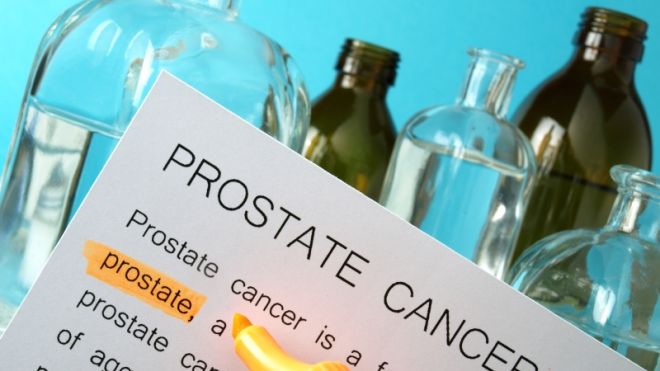For contributors:
The login link has changed to secure the site from spammers and hackers. Please send a message using the Contact Form to receive the new login link.
If you wish to be a contributor, please submit an application at CONTRIBUTOR APPLICATION.
Understanding the New PSA Testing Guidelines
Recently the American Urological Association (AUA) announced new guidelines for prostate specific antigen (PSA) testing. These guidelines were designed to help urologists, and ultimately patients, reduce prostate cancer mortality by making informed screening decisions. These recommendations were based on comprehensive literature reviews and the strength of the existing evidence.
How Much Exercise Do We Really Need?
Over the years, we’ve done a number of posts on this blog about how much exercise we (and our children) should be getting. The general consensus is at least 30 minutes every day (or a total of 150 minutes per week). Unfortunately, about 80% of us aren’t coming anywhere near that target. So, in what... CONTINUE READING→
Toilet Seats: An Argument in Favor of Leaving Them Up
Let me say up front that I understand why women want the men and boys in their life to put toilet seats down. I’ve got two sisters, three daughters, a mother, and several ex-wives, all of whom reminded me more than once about the unpleasantness of falling into the toilet. So, yeah, I get it.... CONTINUE READING→
Complementary Medicine Is Used In Conjunction With Traditional Medicine, Not Instead Of
You have heard your friends toss about the phrase “complementary medicine” but you didn’t know what that meant and were too embarrassed to ask. Is this something you should know about? Yes. Complementary medicine means those techniques not considered part of conventional (standard/mainstream) medicine. These therapies are utilized in addition to or a as complement... CONTINUE READING→
More Fascinating D-scoveries (bout Vitamin D)
It seems like every day there’s more interesting news about the benefits of vitamin D. Here are a few of the most recent: We’ve all physically overdone it at some point—say, by lifting more than you should have, running or biking or swimming further than you should have, playing basketball longer than you should have,... CONTINUE READING→
High Soy Diet Reduce Prostate Cancer Risk
World-wide prostate cancer is the 4th most common cancer; however, the incidence of the disease varies markedly geographically. The United States has one of the highest rates of prostate cancer. According to the American Cancer Society, over 240,000 men are diagnosed with prostate cancer every year; this translates into over 2 million prostate cancer survivors... CONTINUE READING→
Colonoscopy Could Save Your Life
If you’re a regular reader of Talking About Men’s Health, you know that there’s been a lot of controversy lately about whether or not two common screening tests—mammograms for women and PSA for men—actually improve survival rates or slow down the profession of early-stage cancers. (Despite the controversy, we believe that in both cases, the... CONTINUE READING→
Track And Trace: Improving the Safety of the Drug Distribution System
The United States has one of the safest and most closely monitored pharmaceutical supply chains in the world. The U.S. Food and Drug Administration (FDA), which reviews and approves all prescription drugs, is responsible for the security of our prescription drugs and has long been a vigilant watchdog over unsafe, diverted and counterfeit drugs. Unfortunately,... CONTINUE READING→
5 Ways to Be Part of the Quiet Revolution in Prostate Cancer Care
There is a quiet revolution taking place in the world of prostate cancer diagnosis and treatment. Last year, the US Preventive Services Test Force issued a directive to discontinue PSA testing in men in order to prevent the widespread misinterpretation of PSA findings by doctors and the harmful overtreatment of men. In April of this... CONTINUE READING→
Tri-ing too Hard Could Kill You
Whether you’re working out for hours or you’re just doing mini workouts, there’s no question that exercise is good for you. But, according to cardiologist, there may actually be a point where too much exercise becomes dangerous—especially for men 40 and older who are competing in triathlons. The biggest risk is sudden cardiac arrest, which... CONTINUE READING→

